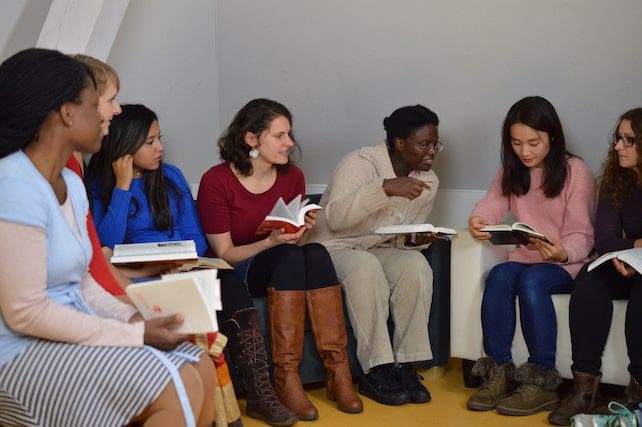 As church small groups seek deeper levels of connection, healing, and spiritual growth, integrating advanced practices from experiential and emotion-focused group therapies can offer profound insights and tools. Techniques from Gestalt Therapy, Existential Therapy, Emotionally Focused Therapy (EFT) for groups, Compassion-Focused Therapy (CFT) groups, Process-Oriented Psychology groups, Encounter groups, and Psychodrama can be contextualized for the church small group setting, enhancing the group’s ability to navigate complex emotional landscapes within a faith-based framework. These advanced practices, rooted in a deep understanding of human emotion and experience, can facilitate transformative spiritual journeys grounded in authenticity, compassion, and communal support.
As church small groups seek deeper levels of connection, healing, and spiritual growth, integrating advanced practices from experiential and emotion-focused group therapies can offer profound insights and tools. Techniques from Gestalt Therapy, Existential Therapy, Emotionally Focused Therapy (EFT) for groups, Compassion-Focused Therapy (CFT) groups, Process-Oriented Psychology groups, Encounter groups, and Psychodrama can be contextualized for the church small group setting, enhancing the group’s ability to navigate complex emotional landscapes within a faith-based framework. These advanced practices, rooted in a deep understanding of human emotion and experience, can facilitate transformative spiritual journeys grounded in authenticity, compassion, and communal support.
Gestalt Therapy in the Church Small Group Context
Gestalt Therapy’s emphasis on awareness, here-and-now experience, and unfinished business can be adapted to help group members recognize and express their present feelings and experiences. Techniques such as the “empty chair,” where an individual dialogues with an absent person or a part of themselves, can facilitate healing conversations and reconciliation, both with others and within oneself. These practices encourage members to bring their whole selves to the group, fostering a deeper understanding of personal and spiritual identity.
Existential Therapy: Exploring Life’s Fundamental Questions
Existential Therapy’s focus on core human conditions such as freedom, isolation, meaning, and mortality can enrich church small groups by providing a space to explore life’s deep questions in the context of faith. Guided discussions on existential themes, framed by biblical perspectives, can help members confront and find meaning in life’s challenges, supported by the hope and promises found in Scripture.
EFT for Groups: Strengthening Emotional Bonds
EFT for groups, with its focus on creating secure emotional bonds and exploring patterns in relationships, can be particularly beneficial for marital or family-focused small groups. Techniques aimed at identifying and transforming negative interaction cycles into bonding experiences can help couples and families within the group deepen their connections, resolve conflicts, and experience God’s design for relationships.
Compassion-Focused Therapy (CFT) Groups: Cultivating Compassion
CFT groups emphasize the development of compassion towards oneself and others as a means of healing. In a church small group, incorporating practices that build compassion can be particularly powerful. Meditations on God’s compassion, exercises to develop self-compassion, and group activities that encourage acts of kindness can reinforce the biblical command to love one another, promoting emotional and spiritual well-being.
Process-Oriented Psychology Groups: Navigating Group Dynamics
Process-Oriented Psychology (Process Work), with its attention to group dynamics, roles, and marginalization, offers valuable tools for managing group interactions. Facilitating open discussions about roles within the group, exploring feelings of inclusion and exclusion, and addressing conflicts with a spirit-led approach can help create a more cohesive and supportive group environment.
Encounter Groups: Promoting Authentic Interaction
Encounter groups focus on honest, direct communication and immediate personal interaction. Adapting this approach, church small groups can encourage members to engage in authentic dialogue, share their true feelings, and offer feedback in a loving, constructive manner. This honesty can foster deeper relationships and spiritual growth, as members practice speaking the truth in love (Ephesians 4:15).

